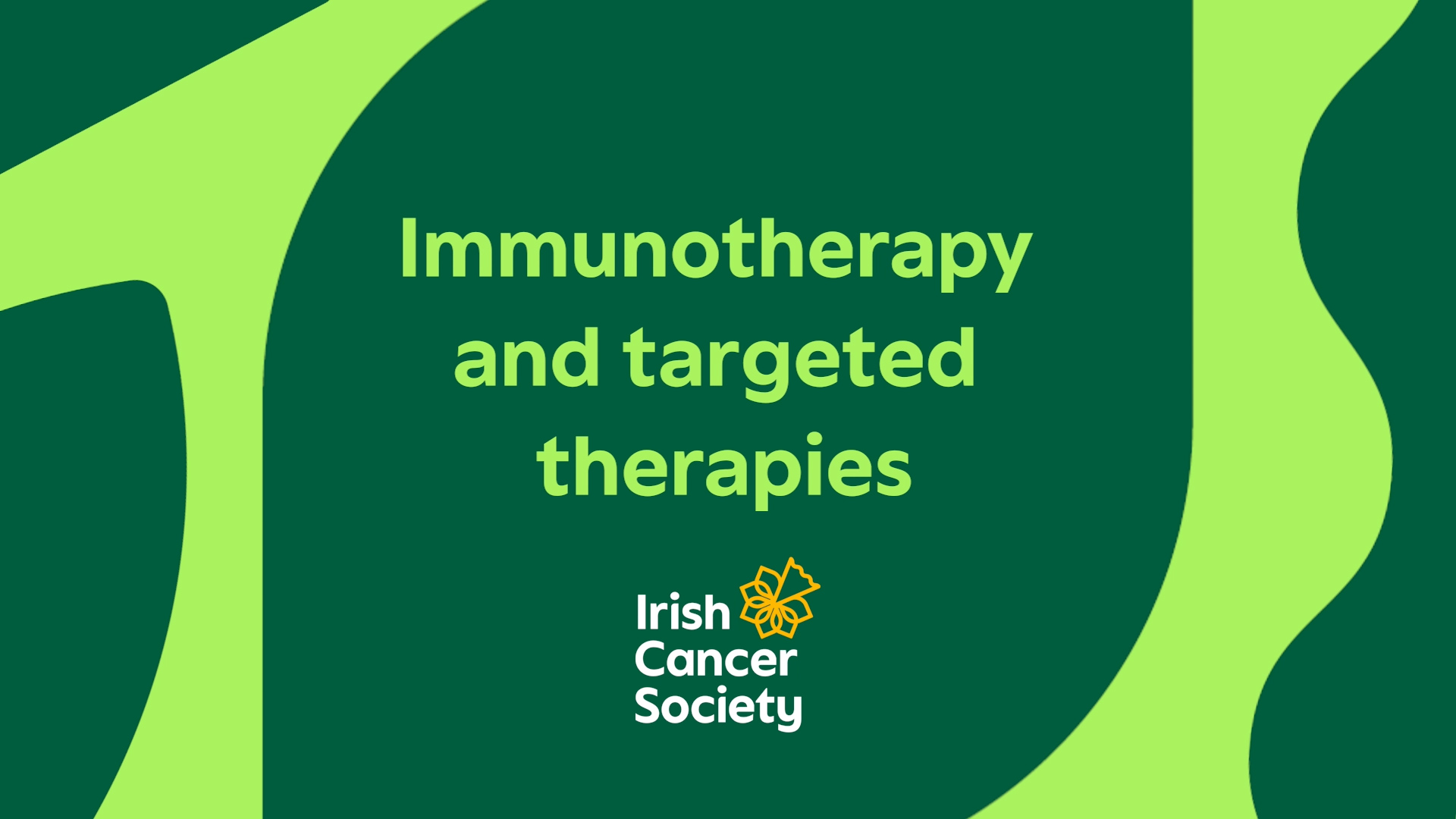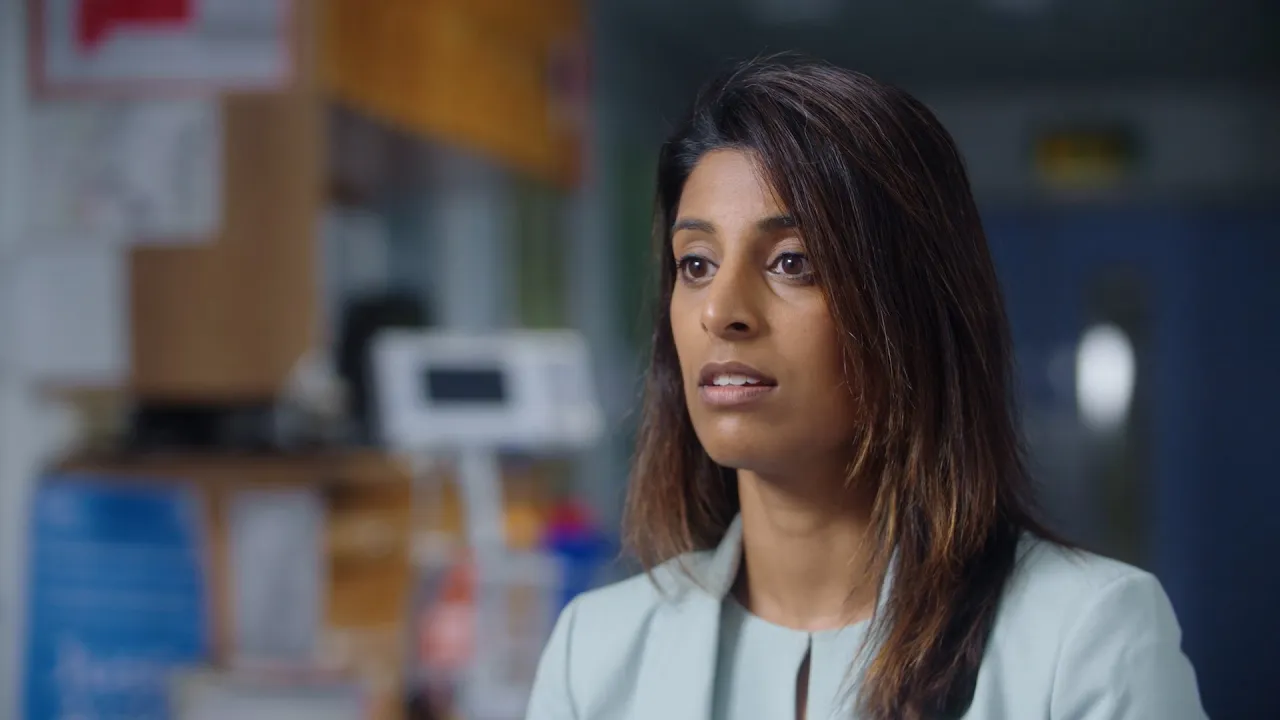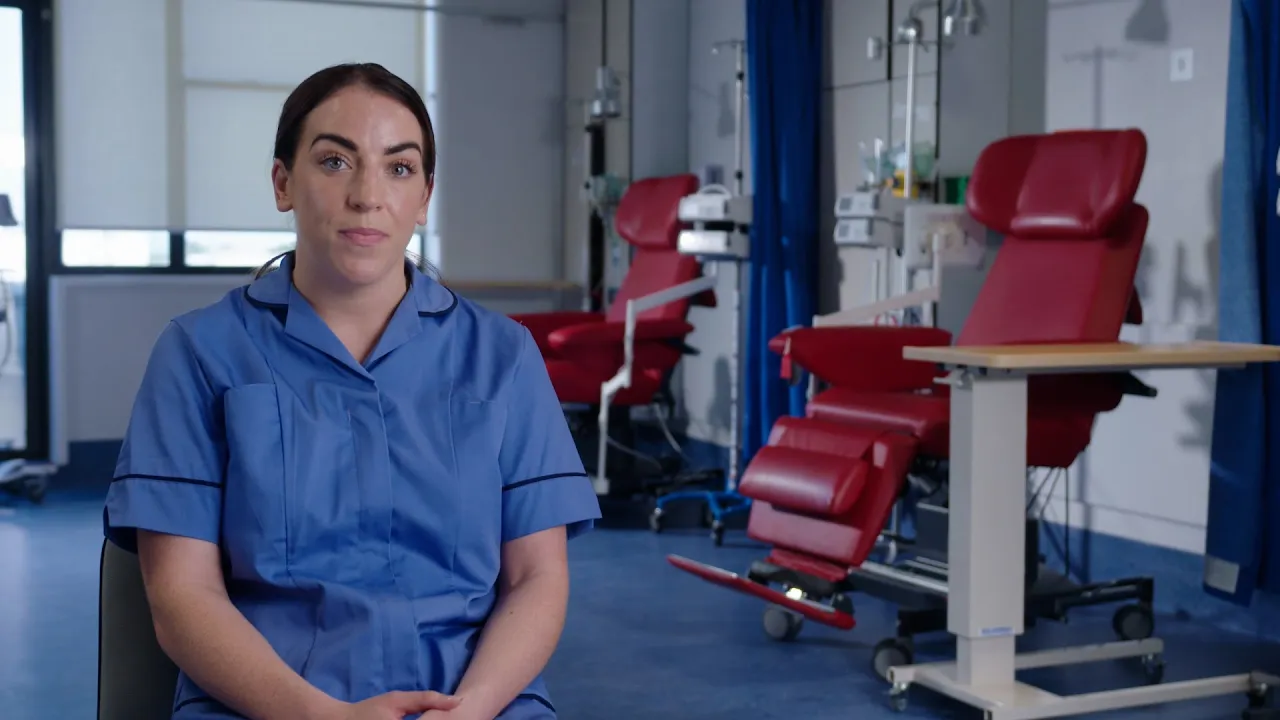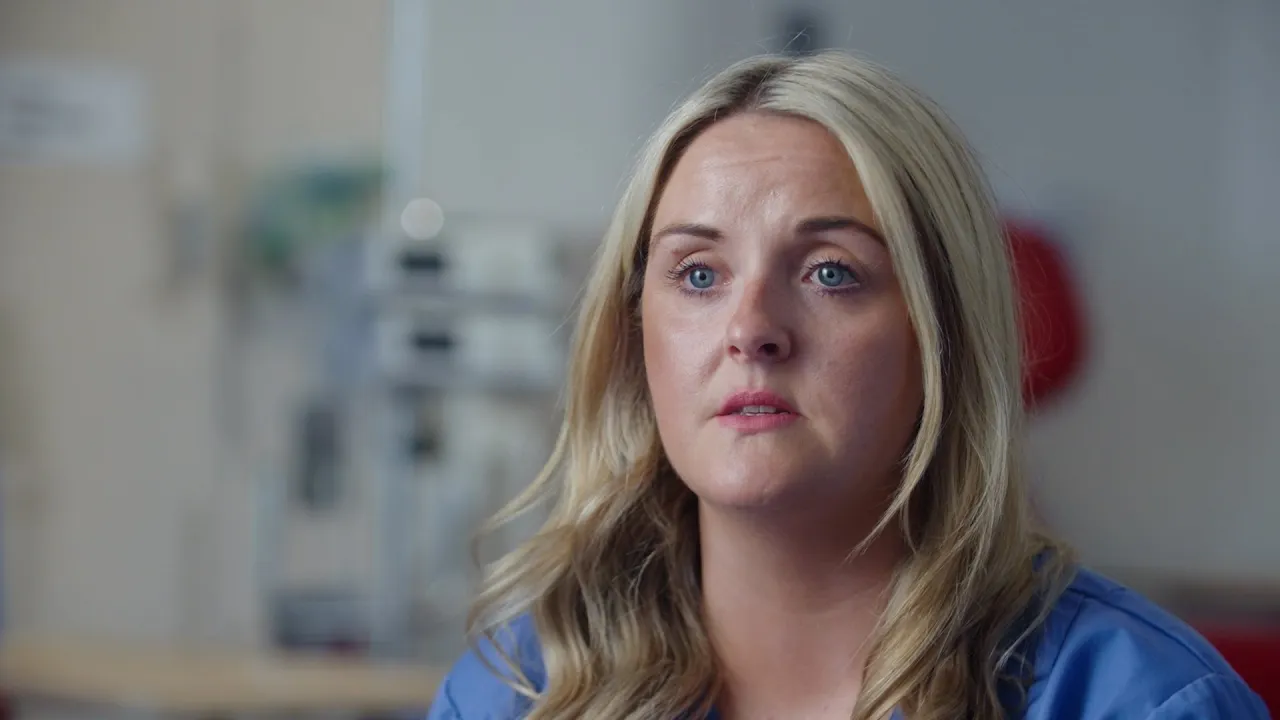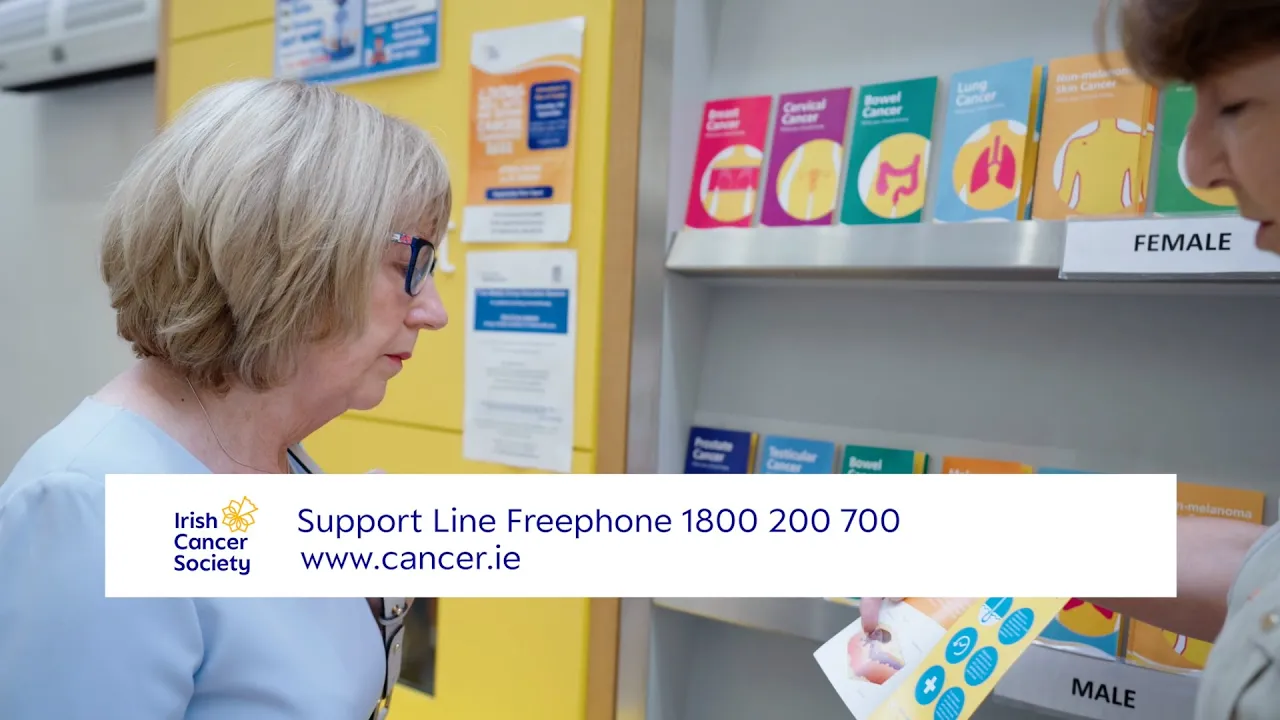Immunotherapy and targeted therapies 2: How they work
This video explains the basics of the immune system and describes how immunotherapy and targeted therapies work.
0:03
Targeted cancer drugs work by targeting the differences in cancer cells that help them to survive and grow. You may have had a biopsy or a recent cancer surgery, and following this, the tissue was examined in the laboratory to analyse the individual tumour and its features. This is also known as molecular profiling.
0:30
This helps to determine what drug or combinations of drugs will work best in terms of effectiveness and safety, and in particular, whether you will or will not benefit from certain targeted therapies.
0:44
Targeted therapies can work in a number of ways, but at their core they target the specific abnormalities associated with your individual tumour profile.
0:56
Some of them include those that, firstly, change proteins within the cancer cells so that the cells die. Some may stop a cancer from making new blood vessels that feed cancer cells. Others carry toxins to the cancer cells in order to kill them. Others block signals inside and outside the cancer cell. And lastly, some help chemotherapy to get directly to cancer cells.
1:27
When your doctor or a team member talks about targeted therapies, you may hear some different types of therapies mentioned. Do not worry, they all fall under the umbrella of targeted therapies.
1:45
The immune system is your body's natural defence system. It searches the body for potential threats like infections and protects you against disease and infection. It is made up of organs such as your spleen and lymph system, and special white blood cells, all working together to create an immune response to protect you.
2:10
Cancer cells have found a way to hide from the immune system. This allows cancer cells to grow without being detected and spread throughout the body.
2:21
Immunotherapy is a type of cancer treatment that uses your body's own immune system to fight cancer. It uses substances made by the body or in a laboratory to improve how your immune system works, to find and destroy cancer cells.
2:40
The most common way immunotherapy is given is directly into the bloodstream as an injection or through a drip. This is known as intravenously, in an infusion pump. The frequency and time of the infusion will depend on the specific drug being administered.
2:58
You may hear some of the following words, phrases, or medical jargon used by the doctor. These include: inhibitors, antibodies, relevant proteins in the cell, cancer vaccines, adaptive cell transfer such as CAR-T cell therapy, combinations of target therapies and chemotherapy that simply enhance the killing of the cancer.
3:31
This list is likely to expand as more research and cancer therapies evolve.
3:40
Immunotherapy is different from chemotherapy and how it works. Chemotherapy gets into cancer cells and either kills them or stops them from being able to grow. Chemotherapy can impact healthy cells as well as cancer cells, which is why, for example, your hair may fall out.
3:57
Immunotherapies reprogramme or boost your own immune system to do the work of finding and killing cancer cells.
4:06
It is important to note that not all cancers can be treated with targeted therapies and immunotherapies. For some cancers, chemotherapy may be the gold-standard treatment.
4:21
Both targeted therapies and immunotherapies can be given for a long period of time, such as a year or more. They are given either over a prescribed amount of cycles or for as long as the treatment is working for you, and as long as you continue to tolerate it well.
4:39
You will be scheduled for regular monitoring, which can include blood tests, scans and check-ups by the medical team. Many people on targeted therapy have a long-term response to treatment, with really good quality of life. But sometimes the cancer finds a way to outwit or another way to evade the treatment. This is known as drug resistance, but it does not mean another drug will not work.
5:09
Advances in science and drug development has meant that there are other drugs that block the same target in different ways when drug resistance occurs. These are known as second-line and third-line treatment options, with favourable outcomes.
5:29
So don't won't be alarmed if this happens. Your medical team will consider all the treatment options that are effective for you. In fact, new therapies are emerging all the time.
Immunotherapy and targeted therapies playlist
